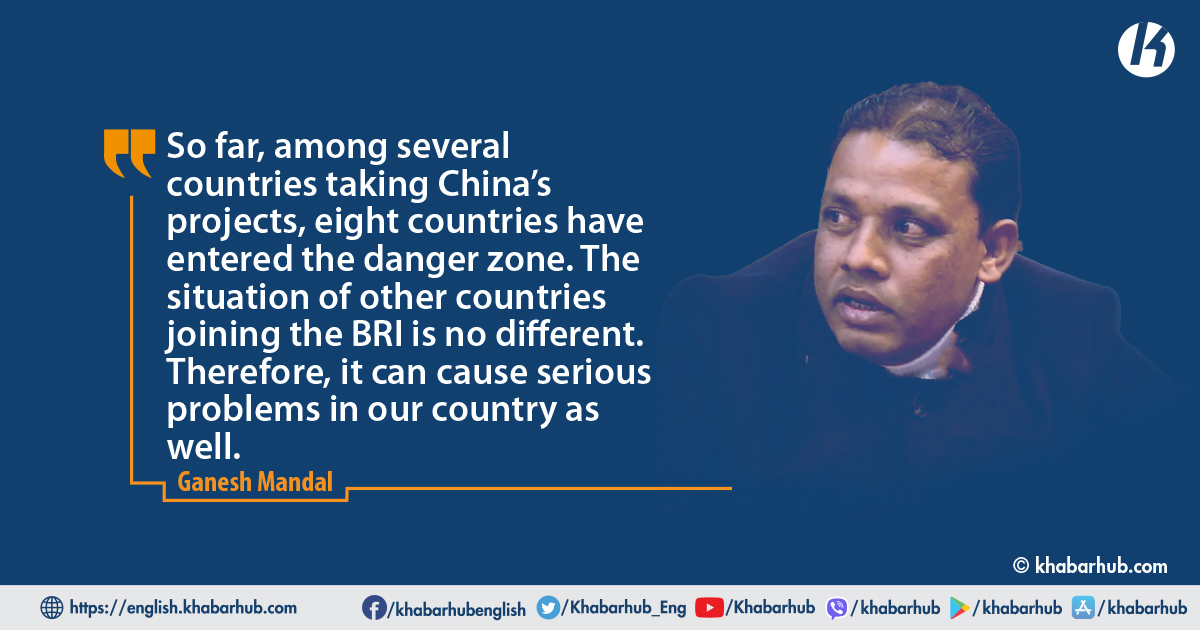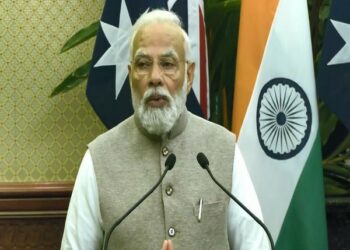Sri Lanka was ruled by a family for quite a long time. The hegemony of a family, caste, or tribe over others for a long time drew many complications.
Currently, the situation in Sri Lanka is extremely complicated and this island country is suffering from an economic recession.
Although the situation in Nepal is not exactly the same, there are a few indicators that make one feel Nepal can follow the path of fall very soon.
Government changes, and leadership in the government changes as well; unfortunately, together with the government, the decisions made by the previous government are destined to be gathering dust.
They are disregarded. Even the foreign policy seems to change with the change of the government.
Foreign policy, here, changes as per the parties or the individuals in power. Nepal’s foreign policy does not seem stable.
China has made it clear to the world what its foreign policy will be. Similarly, India is also clear about its foreign policy.
However, the government of Nepal seems ignorant of what is Nepal’s foreign policy. What a surprise!
China has put forward the Asian Infrastructure Investment Bank (AIIB) as an alternative to the World Bank. However, how beneficial can it be for us is still to be seen.
The US has also clarified its foreign policy under the Indo-Pacific strategy. Similarly, G7 has also clarified its opinion.
What is Nepal’s position on such issues? It is really a sad surprise to find the inability of the Ministry of Foreign Affairs to clarify its position on such issues.
China has now invested in roads to sell its goods in the world market. Its plan is to take that route through Nepal.
However, it is seen that China is trying to take the road according to its needs from our country, but placing the burden of debt on Nepal. It benefits China more than Nepal.
Nepal expressed its support for Ukraine when the Russia-Ukraine war started (which is still going on). I was surprised to see Prime Minister Sher Bahadur Deuba’s support for Ukraine.
It is brave of him to show this support to Ukraine despite being the PM of the four pillars of the Communist parties.
This incident reminded me of BP Koirala. When Israel came into existence, BP dared to establish a cordial relationship with Israel. This was an important action of the then government.
However, the previous government (CPN-UML Chairman KP Oli-led government) was very happy about the BRI promoted by China and the current government cannot hear about it.
This means the foreign forces understand very well that they can benefit when they manage to make their puppets succeed in power.
After being elected in 2013, Chinese President Xi Jinping made his first visit to the desert after taking office.
Seeing the damaged roads of Mid- Asia and Central Asia, he took forward his ambitious project to improve them so as to deliver the goods produced in his country to the whole world and earn money.
BRI’s sole objective is to expand its business across the globe by connecting sea and land. In order to connect by sea, China built a gateway in Male, the Maldives, and built other ports in Malaysia.
China first brought the concept of the One Belt Road to go through Asia, and Central Asia to Europe and Africa. Later it was called BRI.
We should demand the actual document of BRI and bring it to the general public and have a wide discussion about it. A minute discussion prior to taking on such projects can help the country refrain from falling into the debt trap.
China built ports in many countries of the world including Bangladesh. After that, China brought BRI forward to bring the world as a power.
China has put forward the Asian Infrastructure Investment Bank (AIIB) as an alternative to the World Bank. However, how beneficial can it be for us is still to be seen.
When we find the construction trade of Chinese projects, we find it using its manpower rather than using local manpower.
When the projects are made in Nepal, neither Nepali engineers nor Nepali contractors get a chance in such construction.
China brings all the necessary materials for the project, which means that Nepal’s investment will go abroad. It benefits China entirely.
The business also belongs to China. What Nepal will get is a financial debt burden. Even in this situation, Nepal’s top leaders signed this agreement in 2017 without discussing it with the people and experts. Sadly, the Nepali side has not yet received a response to the agreement made at that time.
So far, eight countries that have taken Chinese projects have reached the danger zone. BRI is not beneficial for Nepal either.
We should demand the actual document of BRI and bring it to the general public and have a wide discussion about it. A minute discussion prior to taking on such projects can help the country refrain from falling into the debt trap.









Comment